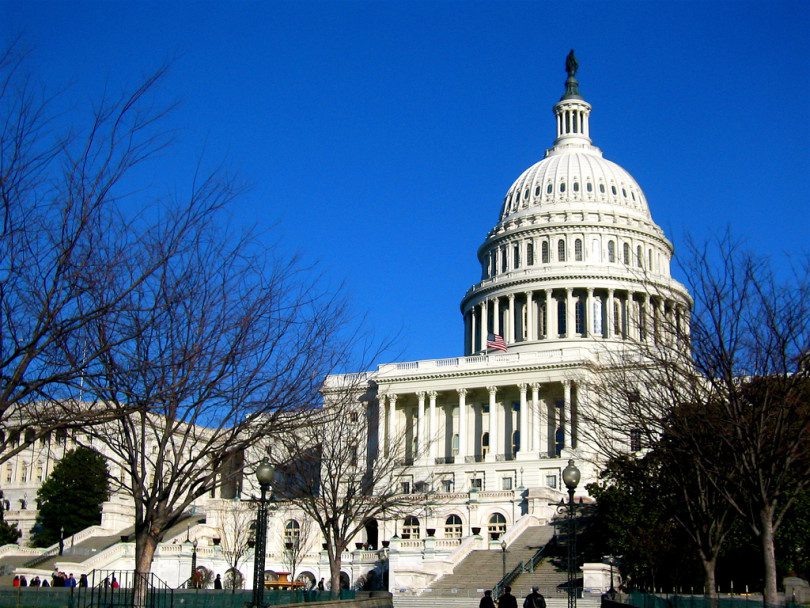In late March, the U.S. House of Representatives passed a bill with bi-partisan support that would again raise Medicare premiums for people with Medicare with higher incomes. Today, the Senate passed the legislation, and President Obama has said he will sign it.
Through this bill, H.R. 2, Congress does some good. It fixes the payment formula for doctors who treat Medicare patients, ensuring they are paid adequately; it also extends the Children’s Health Insurance Program. But, hiking Medicare premiums, even a small amount for wealthier individuals, as a way to cover these costs weakens Medicare for everyone.
Driving up insurance costs for people with Medicare with higher incomes is bad policy. Insurers don’t charge wealthier people higher premiums for the same product and neither should Medicare. In fact, until 2003, during the Bush administration, everyone with Medicare paid the same premium. Higher premiums for higher income earners helps position Medicare as a welfare program, makes it easier for Congress to increase premiums on middle class individuals with Medicare next-time it seeks money, and paves the way for the privatization of Medicare.
The overwhelming majority of people with Medicare already pay a $105 monthly premium for Medicare Part B, which covers medical and outpatient services. That amount represents 25 percent of Medicare costs, (Medicare Part A is free for anyone who has worked forty quarters and made payroll contributions to Medicare.) But, today, six percent of people with Medicare–2.9 million people with incomes over $85,000 and couples with incomes over $170,000–are required to pay as much as 80 percent of Medicare’s costs. If H.R. 2 becomes law, it will raise Part B and Part D premiums for some wealthier individuals–those with incomes between $133,500 and $214,000–about another $1,000 a year ($82 a month) beginning in 2018.
Medicare is a social insurance program and not a welfare program. And wealthier Americans already make larger payroll contributions into Medicare. While most people affected by the proposed premium increase will not feel its effect, there are better ways to generate revenue to support Medicare, such as through a more progressive tax system or a financial transaction tax or through negotiated drug prices.
In short:
- The more that wealthier individuals are asked to pay for Medicare, the more Congress positions it as a welfare program and erodes support for Medicare. It opens the door further for Congress to charge middle-income Americans with Medicare higher premiums. Medicare was created as a social insurance program that treats everyone equally, regardless of income, geography, health status. This helps ensure broad support from people across the income spectrum.
- A more progressive tax system that affects everyone is the way to ensure wealthy Americans contribute their fair share to society, while keeping social insurance programs strong. For sure, people with Medicare earning $133,500 and more yearly are generally in good financial shape. Certainly they are relative to the other 94 percent of the Medicare population. But, who knows what’s in store next on the Medicare premium front. Turning Medicare into more of a welfare program by imposing additional financial burdens on wealthier people is a poor policy choice.
The House bill also prohibits Medicare supplemental insurers from selling insurance that covers the Medicare Part B deductible. That’s another poor policy choice.
To be clear, the amount of the additional Medicare premium increase in H.R. 2 is just under $1000 a year. The combined Medicare Part B and D premiums would increase $82 a month beginning in 2018. And, this increase would only apply to individuals with incomes between $133,500 and $214,000 and couples with incomes from $267,000 to $428,000. But, it could be the tip of the iceberg.











I have worked for the feradel govt for 35 1/2 yrs and I am only a GS-7, making just under 50K a year. I just found out Fri that my Healthnet HO premiums are going up 43 percent in Jan 2013 and my co-pays are going up to. So, I now pay $151 a month just for me and they want $214 from me so I am cancelling in open season. I would be farther ahead to put $214 in my mattress and just pay full price at my doctor appts. I have to switch to a high deductible plan. I hope all you Obamacare lovers are satisfied with getting fre birth control and adult children on your health insurance until they are 26 an adult for 8 yrs!!! The single plans increased by 42 percent and the family by 33 percent. Ridiculous. I would be better off to pay full price for birth control than these outrageous premiums. Welcome to Obamacare we all pay more so the deadbeats can keep getting everything for FREE!
This article is about Medicare, not Obamacare, although if Obamacare had the public option that Republicans got rid of, it would have provided real competition and kept prices down, especially in states with Republican governors who let private health care companies keep raising rates, with no oversight over what these companies were doing.
About Medicare. I really do think that those who have more income should pay the same percentage as everyone else.